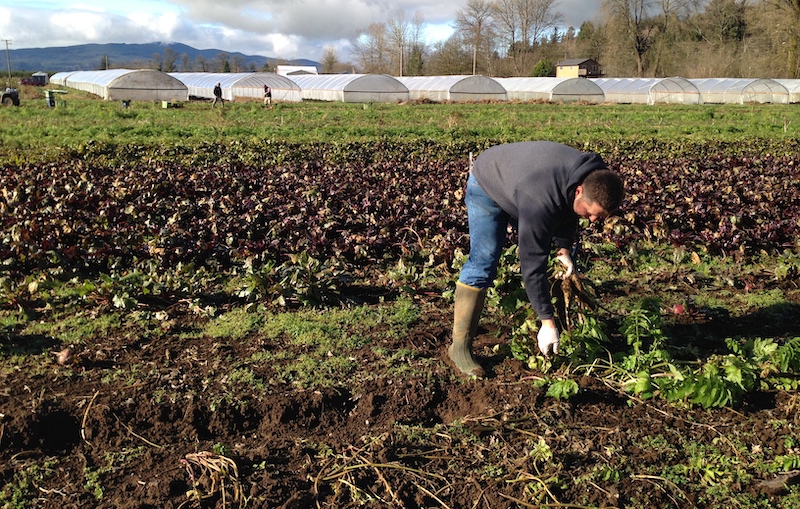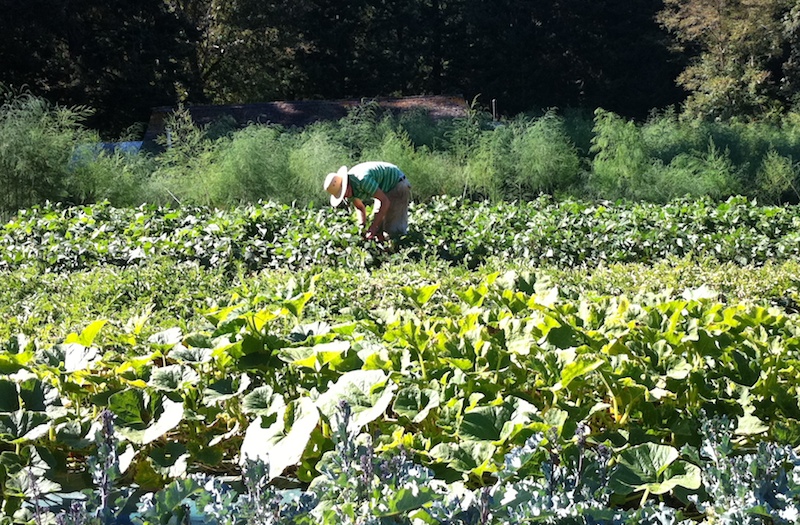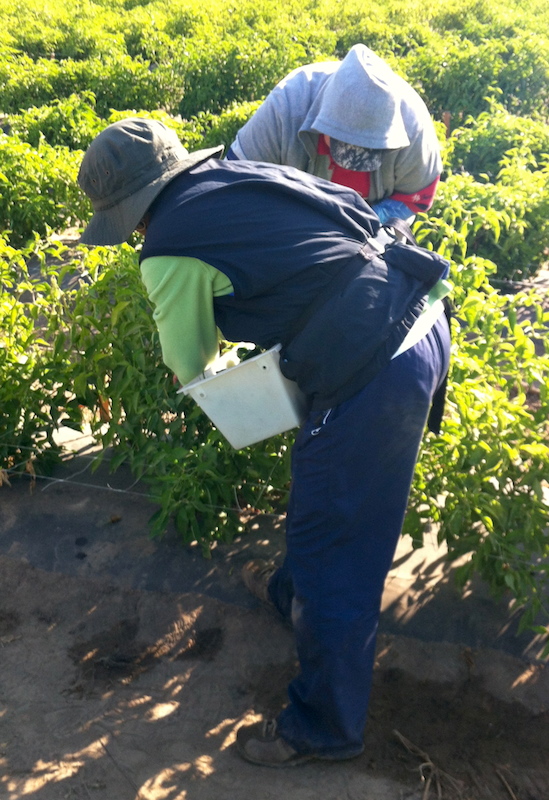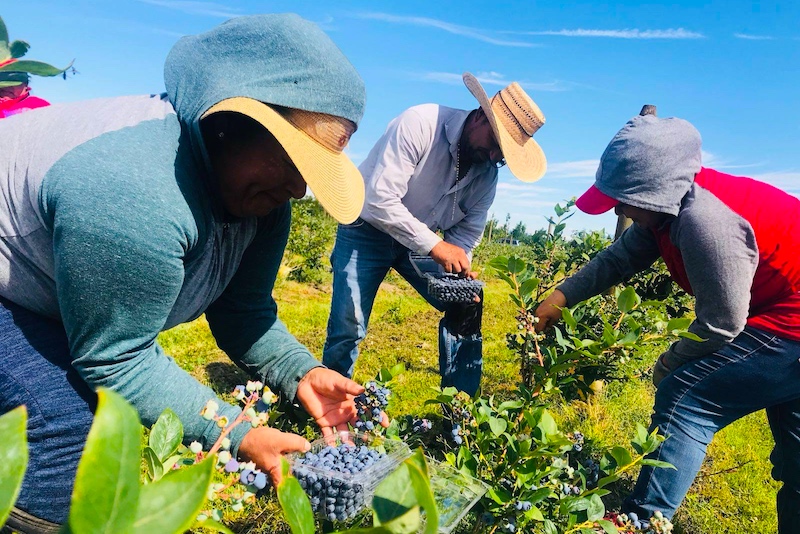
Action Items: Help Local Farmers and Farmworkers…Without Leaving the Couch
I don't know about you, but this quarantine/sheltering in place/social distancing thing is getting old. I'm not at the tear-my-hair-out, run-out-the-front-door-naked stage—for this my neighbors are eternally grateful—but I'm starting to feel like there are things that need attending to besides my Facebook timeline.
Plus if I don't get busy soon, I'll have to address that list of household projects that I always said I'd get around to "when I had the time." Ahem. Below are three issues that need you to take action right now, all without leaving the comfort of your bunker.
Support Local Farms
 As it stands now, farms are not eligible to receive assistance under the Small Business Administration (SBA) Economic Impact Disaster Loan (EIDL) program, including emergency grants, authorized in the Coronavirus Aid, Relief, and Economic Security Act (CARES Act) passed by Congress.
As it stands now, farms are not eligible to receive assistance under the Small Business Administration (SBA) Economic Impact Disaster Loan (EIDL) program, including emergency grants, authorized in the Coronavirus Aid, Relief, and Economic Security Act (CARES Act) passed by Congress.
Please send an email today to your Representative in Congress urging them to sign on to a letter to make sure farms are included. Below is a sample email you can copy and paste into an e-mail. List of Representatives here.
Dear Rep. [insert name],
I am writing to urge you to sign on—if you haven't already—to the letter to support making SBA's emergency economic injury grant program available to farms. It is imperative that farmers be able to access SBA disaster assistance as these programs can help fill the void that many farm businesses are currently feeling due to COVID-19.
Sincerely,
[your name and address]
Support Farmworkers
 Daily living and working was already dangerous and precarious for hundreds of thousands of farmworkers and immigrants before the onset of COVID-19.
Daily living and working was already dangerous and precarious for hundreds of thousands of farmworkers and immigrants before the onset of COVID-19.
Immigration and Customs Enforcement (ICE) has terrorized farmworker communities and powerful growers have suppressed workers' efforts to organize. This pandemic has found a perfect environment to increase immigrant communities' risk of fatality if they contract the virus. The agricultural industry has long refused to implement health and safety protections for farmworkers or worker housing, while state and federal agencies looked the other way. Today, agribusiness is functionally exempt from COVID-19 protocols nationwide.
Take Action: Contact your governor and demand immediate protection for farmworkers. Tell them to:
- Enact Emergency Orders with funding for staffing to ensure all COVID-19 protocols, including appropriate social distancing guidelines, are being followed in the fields and packing/processing, with enforcement and consequences for noncompliance, such as fines. Provide personal protective clothing and equipment to farmworkers at no cost to them. Pay farmworkers sick leave if they become ill. Establish an incentive for recruitment of needed farmworkers, including raising wages to work in agriculture.
- Ensure there will be no retaliation against workers asking for better protections, or for becoming ill. Ensure the COVID-19 protocols are not used as retaliation in hiring practices.
- Require transparent recruitment and hiring information and housing protections for all farmworkers related to COVID-19. In addition to informing workers about the terms and conditions of employment when workers are being hired, all persons who are recruiting for agricultural employment must provide detailed information about the risks of COVID-19, including how employers will protect their safety while transporting and housing them, and in the workplace.
- All farmworker housing, tools, and equipment must be fully sanitized before farmworker families move in and use the equipment. There must be proof of that sanitation. There must be designated sanitized quarantine living facilities with access to medical personnel, and COVID-19 plans approved by the state Department of Health and local health jurisdictions.
E-mail Gov. Brown of Oregon. E-mail Gov. Inslee of Washington.
Take Action: Email state agencies and demand a stop to processing and approving H2A visa applications immediately for farms in the state.
 The H2-A guestworker visa program has a long history of exploitation and abuse. By design, the program makes it almost impossible to regulate the protocols needed to prevent COVID-19 contagion. Farmworkers are forced to work in close proximity and share close living and eating quarters, as well as being transported on a daily basis in vans and buses in large groups. The current protocols are not enforceable and have huge gaps, giving individual corporate farms loopholes. This sets up scenarios with potentially deadly consequences for farmworkers and rural communities that are already under served in healthcare, transportation, and infrastructure.
The H2-A guestworker visa program has a long history of exploitation and abuse. By design, the program makes it almost impossible to regulate the protocols needed to prevent COVID-19 contagion. Farmworkers are forced to work in close proximity and share close living and eating quarters, as well as being transported on a daily basis in vans and buses in large groups. The current protocols are not enforceable and have huge gaps, giving individual corporate farms loopholes. This sets up scenarios with potentially deadly consequences for farmworkers and rural communities that are already under served in healthcare, transportation, and infrastructure.
There is no plan for protocols to prepare for the influx of additional H2-A workers once the season begins. Furthermore, there has been no protection for those H2-A workers that are already here—not during their long-distance travel, nor now while they are living in crowded housing and working in close contact in the fields.
In Oregon: E-mail Oregon Foreign Labor Certification Coordinator Dora Herrera. In Washington: E-mail Employment Security Department Executive Operations Dir. Nick Streuli.
Information on farmers and CARES act from Farmers Market Fund. Information on H2_A program and photo of farmworkers on bottom left from Community to Community.